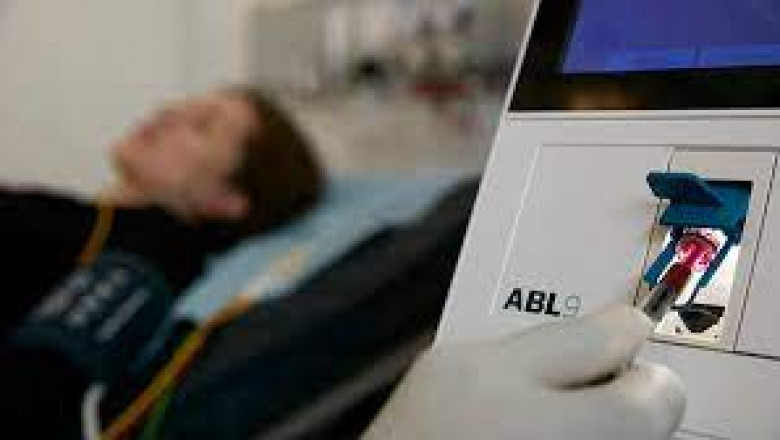views
Introduction:
In the ever-evolving field of medical diagnostics, blood gas analyzers play a crucial role in assessing a patient’s respiratory and metabolic status. These devices provide essential data that help healthcare providers make informed decisions regarding treatment. However, the one-size-fits-all approach often falls short when it comes to meeting the diverse needs of various clinical environments. This article explores how customized solutions for blood gas analyzers can enhance patient care by addressing specific clinical needs.
Understanding Blood Gas Analyzers
What is a Blood Gas Analyzer?
A blood gas analyzer is a specialized medical device used to measure levels of oxygen (O2), carbon dioxide (CO2), and pH in a blood sample. This information is vital for diagnosing and managing conditions such as respiratory failure, metabolic acidosis, and other critical illnesses.
Importance of Blood Gas Testing
- Real-Time Monitoring: Blood gas testing provides immediate results, allowing for quick clinical decisions that can be lifesaving in emergency situations.
- Assessing Respiratory Function: By analyzing blood gases, healthcare providers can evaluate how well a patient’s lungs are functioning and whether they require supplemental oxygen or mechanical ventilation.
- Guiding Treatment: Accurate blood gas readings help guide treatment plans, including the adjustment of medications and therapies based on a patient’s specific needs.
The Need for Customized Blood Gas Analyzers
While traditional blood gas analyzers are effective, they often lack the flexibility required to address unique clinical situations. Customized solutions can enhance their functionality and usability in the following ways:
1. Adapting to Clinical Environments
Different clinical settings—such as emergency rooms, intensive care units (ICUs), and outpatient facilities—have distinct requirements for blood gas testing. Customizing analyzers for specific environments can enhance their effectiveness.
- Emergency Rooms: In high-pressure situations, analyzers may need rapid turnaround times and compact designs for easy transport.
- ICUs: Custom solutions could include integrated monitoring systems that continuously track a patient’s blood gas levels.
2. Meeting Specific Patient Needs
Patients with unique health conditions require tailored testing solutions. Customized blood gas analyzers can be designed to accommodate specific patient populations, such as:
- Pediatric Patients: Analyzers may require smaller sample volumes and specialized settings for accurate testing in children.
- Patients with Chronic Conditions: Solutions can be tailored to monitor patients with conditions like COPD or asthma, providing ongoing assessment and timely interventions.
3. Enhancing User Experience
Healthcare providers benefit from user-friendly devices that streamline workflow. Customizing blood gas analyzers with features such as:
- Intuitive Interfaces: Simplified controls and displays can reduce training time and increase efficiency.
- Data Management Systems: Integration with electronic health records (EHR) systems can enhance data tracking and analysis, making it easier for providers to access patient information.
Innovations in Customized Blood Gas Analyzers
The advancement of technology has opened new avenues for customizing blood gas analyzers to meet specific clinical needs. Here are some notable innovations:
1. Modular Design
Modular blood gas analyzers allow healthcare facilities to adapt their devices based on changing needs. Components can be added or removed, providing flexibility in testing capabilities without the need for entirely new systems.
2. Connectivity and Integration
Modern analyzers can be designed with connectivity features that allow for seamless integration with hospital information systems. This enhances data sharing between departments and improves the overall efficiency of patient care.
3. Enhanced Calibration Techniques
Customized calibration options ensure that blood gas analyzers provide accurate results under varying conditions. Advanced calibration techniques can be tailored to specific patient populations or testing environments, improving reliability.
The Impact of Customized Solutions on Patient Care
1. Improved Clinical Outcomes
By tailoring blood gas analyzers to meet specific needs, healthcare providers can make quicker, more informed decisions that lead to better patient outcomes. Real-time data allows for prompt interventions, particularly in critical care settings.
2. Increased Efficiency
Customized solutions streamline workflows, reducing the time healthcare providers spend on testing and data management. This efficiency allows for more time spent on patient care, ultimately enhancing the quality of healthcare delivery.
3. Enhanced Patient Satisfaction
When healthcare providers have the right tools at their disposal, patients benefit from more accurate diagnoses and timely treatment. Improved patient experiences lead to higher satisfaction rates and better overall perceptions of healthcare services.
Conclusion
Customized solutions for blood gas analyzers are revolutionizing the way healthcare providers assess and manage patient conditions. By adapting these devices to meet specific clinical needs, healthcare facilities can enhance patient care, improve clinical outcomes, and increase efficiency. As technology continues to advance, the importance of tailored diagnostic solutions will only grow, making it essential for healthcare providers to invest in customizable blood gas analyzers that cater to the diverse needs of their patients. In doing so, they will not only elevate the standard of care but also empower their teams to deliver the best possible outcomes in an ever-changing medical landscape.
Read the complete blog: https://www.nextmsc.com/blogs/blood-gas-and-electrolyte-analyzer-market






















Comments
0 comment